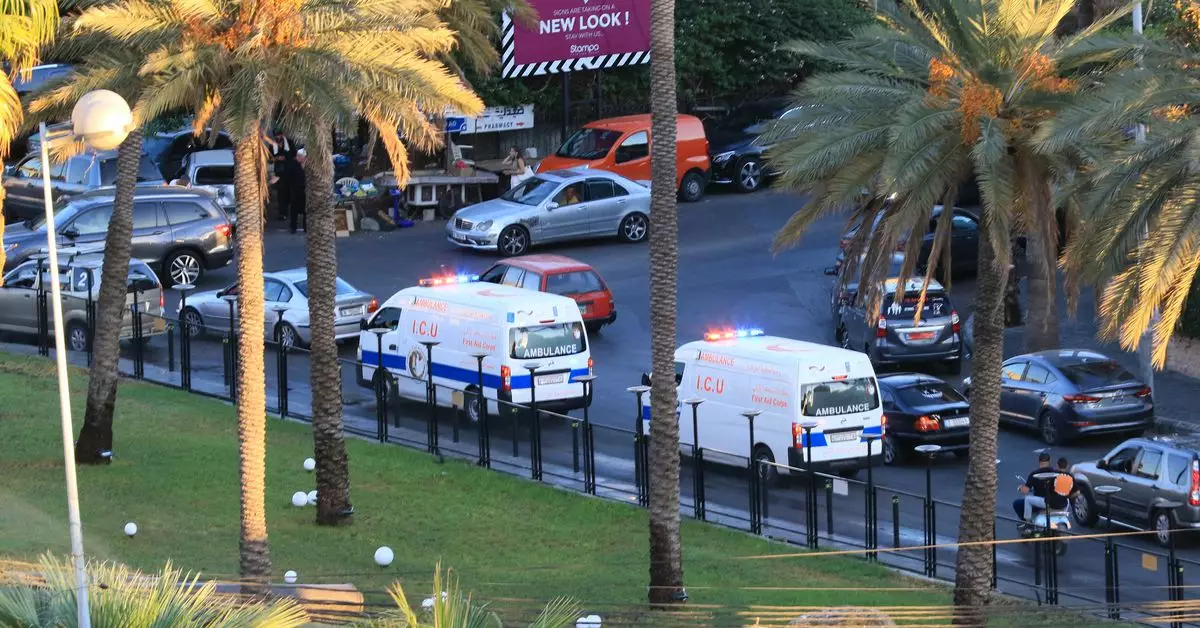In a harrowing turn of events, Lebanon and Syria have become the epicenter of a disaster involving modified pagers that resulted in numerous casualties. Reports indicate that thousands have suffered injuries, and tragically, nine lives—including that of a child—were claimed in the explosions. The Lebanese Health Minister, Firass Abiad, shared these alarming statistics, highlighting the seriousness of the situation as reported by the Lebanese National News Agency. The implications of such a catastrophe are multifaceted, raising issues of security, technology misuse, and the often-ignored plight of civilian communities caught in geopolitical crossfire.
At the heart of this incident is a sophisticated and sinister strategy purportedly devised by Israel. In a complex operation against Hezbollah, reports suggest that Israel hid explosive materials within pagers, claiming that they were imported as part of a batch from Gold Apollo, a Taiwanese manufacturer. This alarming information was shared by officials who were briefed by American and allied intelligence. Such an assertion stands as a testament to how technology intended for benign communication can quickly morph into tools of warfare.
Historically, Hezbollah has posed a formidable threat to Israel, and the group’s reliance on low-tech communication devices has been well documented. The intent behind using pagers, ostensibly, was to sidestep the pervasive threat of digital surveillance. However, the modification of these devices illustrates an unsettling evolution in modern warfare tactics. As Hezbollah leaders have engaged members, characterizing electronic devices as “collaborators” in their struggle, this incident raises critical questions about civilian safety and the ethics of using technology as a weapon.
The Chain of Events Leading to Chaos
According to reports, more than 3,000 of these pagers exploded shortly after receiving a coded message, which purportedly mimicked communications from Hezbollah’s internal leadership. This orchestrated event coincided with escalating hostilities between Hezbollah and Israeli forces, following months of warfare amplified by the ongoing Israel-Hamas conflict. The timing of the explosions and their execution raises suspicions regarding the operational planning behind them. Why would Israel choose this method, and what does it signify for the future of regional conflicts?
As videos of the aftermath circulate across news outlets and social media platforms, the human face of this calamity becomes all too clear. Footage capturing the immediate chaos reveals everyday individuals—victims of this tragic turn of events—momentarily frozen in disbelief before the devastating explosions occur, serving as a grim reminder of the vulnerability faced by civilians in conflict zones.
Amidst the chaos, questions surrounding the manufacturer of these pagers have emerged. Gold Apollo’s CEO, Hsu Ching-Kuang, has firmly asserted that his company did not produce the faulty devices. Instead, he claims that a European entity licensed the brand and produced the pagers in question. This distinction begs further inquiry into the supply chain that led to the production of these modified devices. Who bears responsibility when a product is repurposed for violence, and what regulatory measures are in place to prevent such occurrences?
Moreover, the fact that a manufacturer in Taiwan had its product misappropriated in such a malign manner shines a spotlight on the often-overlooked implications of globalization in trade. As technologies cross borders, the potential for misuse increases exponentially, prompting the need for vigilance and cooperation among international stakeholders.
The Broader Impact of the Incident
This explosive incident serves as a crucial reminder of the precarious balance between technological advancement and humanitarian consequences. With an estimated 2,800 injured and countless more affected by fear and instability, the repercussions reach far beyond the immediate victims. Communities are left in turmoil, grappling with the aftermath, as geopolitical conflict perpetuates a cycle of violence and retaliation.
This tragic event resonates on multiple levels, urging policymakers, security experts, and corporate leaders to engage in meaningful discourse about the ethics of technological innovation and the urgent need for protective regulations. As the dust settles and investigations continue, it is essential to reflect on the implications of such acts not just for those who live under the shadow of conflict, but for our global society at large. The need for dialogue, understanding, and preventive measures has never been more pressing in a world fraught with tension and technological peril.

